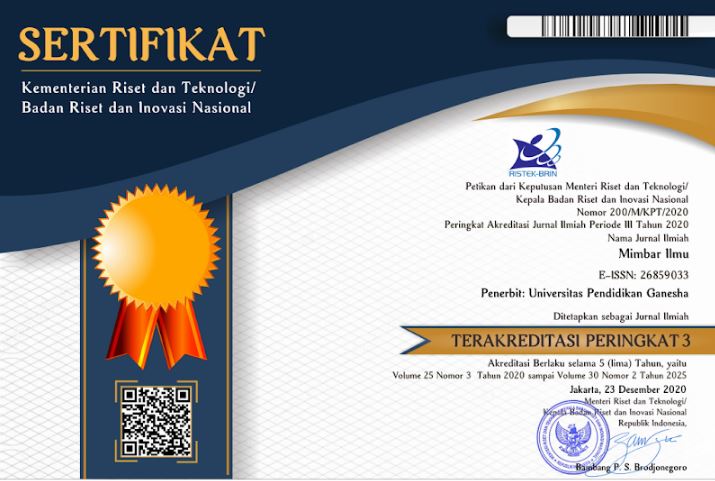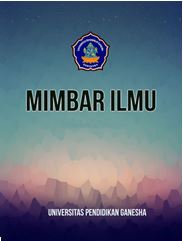Improving English Speaking Skills of Fourth Grade Elementary School Students Through Contextual Problem-Based Mobile-Assisted Language Learning Media
DOI:
https://doi.org/10.23887/mi.v29i2.74549Keywords:
Media, Mobile Assisted Language Learning (MALL), Contextual Issues, English Speaking SkillsAbstract
This study was motivated by the low English speaking skills of students and the less than optimal use of learning media in learning activities. The purpose of this study was to create learning media that can improve the speaking skills of fourth grade elementary school students in English. This study used the ADDIE model. The subjects were material experts, learning media experts, practitioners, and students in fourth grade of elementary school. The purpose was to measure their level of English speaking skills. Data were collected through observation, interviews, and questionnaires. Observation guidelines, interview guidelines, assessment scale sheets, and questionnaire sheets were the tools used to collect data. A total of 34 students from fourth grade of elementary school were involved in the product trial. To determine the effectiveness of the product, a t-test with correlated samples was used to analyze data from the pre- and post-test results. The results showed that the mobile-assisted language teaching tool (MALL) based on contextual problems was valid. Thus, the results of expert and practitioner evaluations determine the validity and effectiveness of the developed contextual problems.
Published
How to Cite
Issue
Section
License
Copyright (c) 2024 Nindya Yutami, I Wayan Widiana

This work is licensed under a Creative Commons Attribution-ShareAlike 4.0 International License.
This work is licensed under a Creative Commons Attribution-ShareAlike 4.0 International License.
Authors who publish with this journal agree to the following terms:
- Authors retain copyright and grant the journal right of first publication with the work simultaneously licensed under a Creative Commons Attribution License that allows others to share the work with an acknowledgment of the work's authorship and initial publication in this journal.
- Authors are able to enter into separate, additional contractual arrangements for the non-exclusive distribution of the journal's published version of the work (e.g., post it to an institutional repository or publish it in a book), with an acknowledgment of its initial publication in this journal.
- Authors are permitted and encouraged to post their work online (e.g., in institutional repositories or on their website) prior to and during the submission process, as it can lead to productive exchanges, as well as earlier and greater citation of published work.








